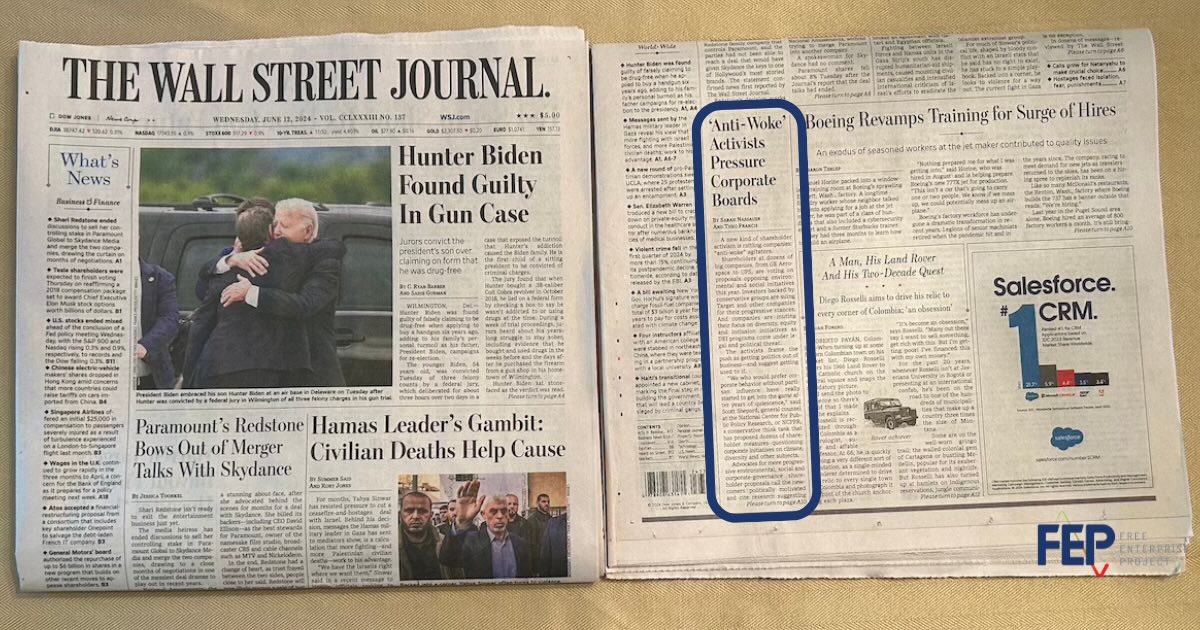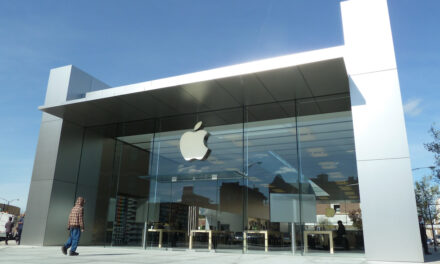LTP News Sharing:
The shareholder activism of the National Center’s Free Enterprise Project (FEP) was featured yesterday on the front page of The Wall Street Journal print edition.
In a page-one feature entitled “‘Anti-Woke’ Shareholders Are Going After Corporate Boards,” Sarah Nassauer and Theo Francis cite our lawsuits against Target and others, our swath of shareholder proposals on environmental and social issues, and our success in getting companies to back away from Diversity, Equity and Inclusion (DEI) initiatives.

Scott Shepard
They also highlight our efforts to get companies out of progressive politics and back to neutral:
The activists frame the push as getting politics out of business—and suggest getting used to it.
“We who would prefer corporate behavior without partisan influence have really started to get into the game after years of quiescence,” said Scott Shepard, general counsel at the National Center for Public Policy Research, or NCPPR, a conservative think tank that has proposed dozens of shareholder measures questioning corporate initiatives on climate, diversity and other subjects.
While it’s true that none of our proposals have passed this year — thanks in no small part to the outsized influence of proxy-advisory companies Institutional Shareholder Services (ISS) and Glass Lewis and the fact that giant leftist asset managers like BlackRock continue to vote most investors’ shares in support of leftist causes (If you made money selling ESG funds and ratings, would you support “anti-ESG” proposals?) — the Journal writers note that FEP and our allies are still seeing progress:
Shareholders have voted on 70 measures opposing traditional ESG initiatives at S&P 500 companies through the end of May this year, up from 30 two years ago and seven in 2020… Shareholders have filed more proxy proposals overall in recent years as the social and political nature of proposal topics increases. But anti-ESG proposal growth outpaced that of other categories tracked by ISS.
And the Journal highlights some of our specific gains this year:
Among the most successful anti-ESG proposals so far this year: one asking UPS to report on risks stemming from voluntary carbon-reduction promises, with 7.9% of shares voted in support, and one asking IBM for a report on risks from doing business in China, at 5.6%. A proposal asking Ford for a report on child labor in its supply chain also garnered about 5.6% of votes.
All three were proposed by NCPPR, which made just over half of anti-ESG shareholder proposals in each of the last three years, ISS data show. A half-dozen other groups proposed the rest. NCPPR also requested reports on risks from diversity efforts at a half-dozen companies—including PepsiCo, Coca-Cola and Citigroup—and reports on carbon-reduction risks, similar to the one at UPS, at five other companies, including GE Aerospace.
NCPPR, which receives funding from individuals and several conservative groups, also has proposed oversight of charitable giving and partnerships related to diversity and LGBTQ groups at large retailers including Walmart, Target and Best Buy.
At Best Buy, shareholders won’t vote on the proposal because the retailer negotiated with NCPPR to keep it off ballots. The electronics retailer agreed that “any such contributions would be screened to ensure they do not advocate or support the causes or agendas you have identified as concerning,” according to correspondence included in financial filings.
The article in its entirety can be read here.
Author: The National Center







